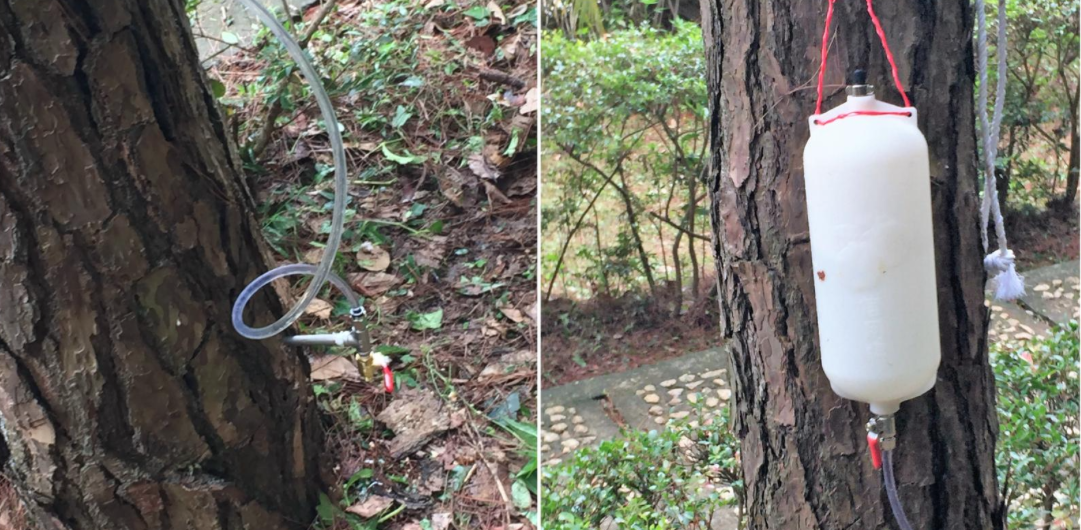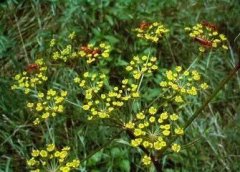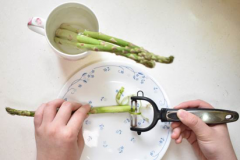How to control litchi stink bugs? What medicine does the litchi stink elephant use to prevent and cure the tree? can you give it an injection?
Litchi stink bugs not only invade longan and litchi, but even the common street trees in the city, Taiwan Koeluan trees, are host plants, but Taiwan Koeluan trees are not dwarfed like fruit trees, making it difficult to spray pesticides from the air. Even if it is sprayed, 50% of 80% pesticides are scattered in the air. The Forestry experiment of the Council of Agriculture suggests that under the guidance of experts, pesticide aqueous solution can be moderately injected into the tree for prevention and control. On the other hand, the Agricultural Drug and Toxicology Laboratory of the Council of Agriculture is planning to cooperate with Taiwan Tree Hospital to give injections to Luanshu in Taiwan to evaluate the effectiveness of the control of litchi stink bugs.
However, Hong Qiaozhen, an associate researcher in the safety materials group of the Institute of drugs and drugs, cautioned that street trees and residential landscape trees can use injections to control litchi stink bugs, but they are not recommended for use on litchi and longan trees for agricultural production. Apart from being not in line with economic benefits, it is also necessary to monitor pesticide residues, otherwise there will be food safety concerns.

Litchi stink bugs ravaged the whole of Taiwan litchi, longan and Taiwan Luanshu.
This year, litchi stink bugs have multiplied in large numbers. Litchi trees and longan trees in China have reported disasters one after another. Litchi trees ingested by litchi stink bugs and longan trees have experienced tender shoot withering, flower drop, fruit drop, and so on. The insect crisis caused by litchi stink bugs not only appears in fruit parks, but also can be found in Taiwan Luanshu, which is common in China.
Litchi stink bugs enter the adult stage in May. Brightly colored litchi stink bugs nymphs or adults similar to trees can sometimes be seen on litchi trees, longan trees or Taiwan Koeluan trees. Litchi stinging bugs will emit secretions when they are frightened, and the human body will be allergic to skin, tingling and burning.
Wu Mengling, deputy director of the Forest Research Institute, pointed out that litchi stink bugs mainly harm litchi trees, longan trees, Taiwan Koeluan trees and other disease-free plants, with specificity, and currently affect litchi trees and longan trees most seriously. litchi stink bugs will not have a serious impact on Taiwan kuan trees, unless there are too many, it is possible for damaged branches to lose their water transport capacity and cause branches to wither.
"injecting trees" can be an option for future control of urban litchi stink weevil.
How to effectively reduce the number of litchi stink bugs in urban areas? Most people's intuition may be to spray pesticides on Taiwan's Luanshu. In the past, the Prevention and Inspection Bureau of the Council of Agriculture of the Executive Yuan announced that pesticides could be used for the prevention and control of stink bugs in Taiwan, including nine kinds of pesticides, including Taosong, Cornitine, Fuke, Seronine, Butyagapril, Saisuan, Amiopectin, Feniramine, and Yida Amine.
In the past, drugstores used to control tree pest problems by injecting insecticides. At that time, they used intravenous drips to fight (as shown in the picture). Wu Meng-ling, deputy director of the Lin Research Institute, said that if the medicine is applied in Taiwan's Luanshu in the future, it can be simplified to a syringe injection, and there is no need for an intravenous drip.
However, Wu Mengling said that Taiwan Koeluan trees, as street trees, are not dwarfed like fruit trees, and the effect of spraying pesticides from the air to control litchi stink bugs is limited. Even if pesticides are sprayed, 50% and 80% of pesticides are scattered in the air. Spraying pesticides is not recommended in the urban environment to control litchi stink bugs. Foreign street trees have gradually changed from spraying pesticides to directly injecting drugs into trees.
Wu Mengling said that in the past, pesticides were used to spray camphor trees to control insect pests. Because of the large size of the trees, it may take 10 to 20 liters of diluted pesticides per tree, but only 10c.c pesticides are needed to achieve the purpose of control. At present, it takes an average of about five minutes to inject a street tree, but the pesticides used cannot contain emulsifiers so as not to reduce the effectiveness of control.
The institute expects to cooperate with the "Taiwan Tree Hospital", which has carried out pine drug injection, in which professionals evaluate the tree diameter and decide on the dosage and how to apply it, while the institute investigates the effectiveness of the control of litchi stink bugs.
Hong Qiaozhen, an associate researcher in the safety materials group of the Institute of Medicine and Drug Administration, said that litchi stink bugs are stinging pests. When pesticides are injected into trees, they will only fall and die from the trees one by one, which can achieve the purpose of prevention and control. Pesticide injection can also solve the situation of spraying pesticides drifting with the air, with little impact on people's lives, and can also reduce the impact on ecology. This method can be used in non-agricultural areas and landscape trees in residential buildings.
- Prev

Can European parsnips be planted in pots? Planting techniques of potted European windbreak grass
Do you know European windbreak? European parsnip is cultivated with its delicious roots, so it is generally best to grow it in the garden, but what if you don't have a garden plot? Can you plant European parsnips in flowerpots? Can you plant European parsnips in flowerpots? one
- Next

Should the skin of asparagus be removed? How to remove the old skin of asparagus is fast and convenient.
No matter imported asparagus or domestic asparagus, it is inevitable that the base of several tender stems in a handful of asparagus is too old or fibrotic. Coupled with the fact that Taiwan is located in the subtropics, the temperature has always been on the high side. If fresh asparagus is not cooked immediately after harvest and the storage environment is not cold enough, the base of the tender stem will also be fast.
Related
- A course of planting techniques and methods on how to grow carrots
- How to plant the latest tulips?
- Is it better to pick tea in the morning or in the afternoon? When is the best time for tea to be picked? what is the third or fifth tea?
- Launch Yuanxiao Happy combination Haocha + Tea Yuan healthy Taste
- Penghu Tourism "Fireworks 20 Parade with You"
- 2022 West Lake Happiness holds "Digital Revitalization Voucher" and draws iphone13 and laptop.
- Banqiao Fuzhou social houses are designed to change start-up combined with police elimination to create a safe and livable environment
- The convenient measure of "mechanical weeding" in Xinbei has been abused and the Agriculture Bureau has imposed heavy penalties on the illegal land consolidation.
- Changgeng University Joins Hands with Four Memory Factories to Rescue Memory Talent Shortage
- The list of Taiwan's top 100 MVP managers is listed by the Director-General of the Farmers' Association of Sanxia District.

